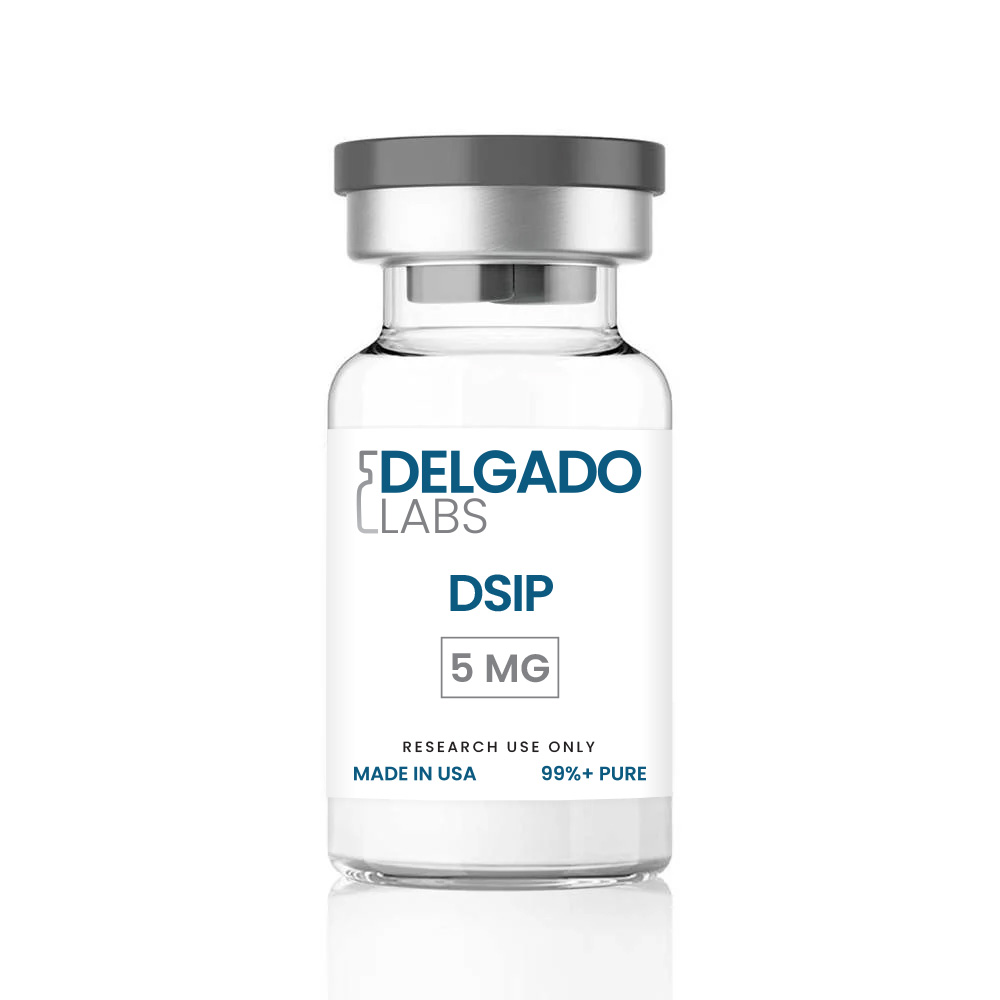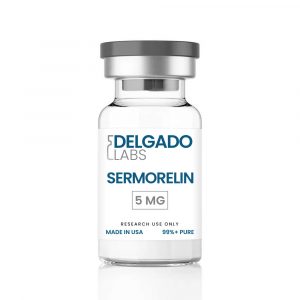Description
What is DSIP (5mg)?
Delta-sleep-inducing peptide (DSIP) is a neuropeptide with diverse effects on endocrine and physiological processes in the central nervous system. First isolated in 1977 from the brains of rats during slow-wave sleep, DSIP has gained attention for its multifaceted roles. Named for its ability to induce sleep in rabbits, DSIP is not only associated with sleep patterns but also has broader implications.
DSIP has shown promise in various areas, including its capacity to reduce oxidative stress and normalize myocardial contractility. Research is underway to explore its potential in the treatment of major depressive disorder, where its ability to alter corticotropin levels and inhibit somatostatin secretion could play a role. Beyond its influence on sleep, DSIP has demonstrated effects on stress reduction, blood pressure normalization, and pain perception alteration. Ongoing studies are investigating its potential applications in cancer treatment and addressing free radical damage, indicating the peptide’s relevance across a spectrum of physiological processes and potential therapeutic avenues.
Chemical Structure of DSIP (5mg)
Delta-sleep-inducing peptide (DSIP) is a neuropeptide, and its chemical structure is composed of a sequence of amino acids. The sequence of DSIP is as follows:
Trp-Ala-Gly-Gly-Asp-Ala-Ser-Gly-Glu
This sequence represents the specific arrangement of amino acids in the DSIP peptide. The chemical structure includes these amino acids linked together in a particular order, and this sequence is responsible for the biological activity and function of DSIP in the body.
What Are the Effects of DSIP (5mg)?
Increases Sleep Quality
Delta-sleep-inducing peptide (DSIP) has been explored for its potential influence on sleep quality. Research suggests that DSIP may have a positive impact on sleep, particularly by enhancing sleep quality. Studies indicate that DSIP can promote slow-wave sleep (SWS), a deep and restorative phase of the sleep cycle. By favorably influencing sleep architecture, DSIP has the potential to contribute to improved overall sleep quality, leading to more effective and rejuvenating rest.
Increased Mood
Beyond its effects on sleep, DSIP has also been investigated in relation to mood. Although the precise mechanisms are not fully understood, some studies propose that DSIP may interact with neurotransmitter systems associated with mood and stress regulation. Neuropeptides, such as DSIP, play intricate roles in the complex network of signals within the central nervous system. Modulation of these signaling pathways by DSIP may contribute to mood-related outcomes, suggesting a potential role in mood enhancement.
It’s essential to acknowledge that the understanding of DSIP and its effects is an area of ongoing research, and further studies are necessary to fully comprehend the extent of its physiological actions. As with many peptides, DSIP’s potential impact on sleep quality and mood underscores the intricate interplay between neuropeptides and the broader neurobiological processes governing mental and emotional well-being.








